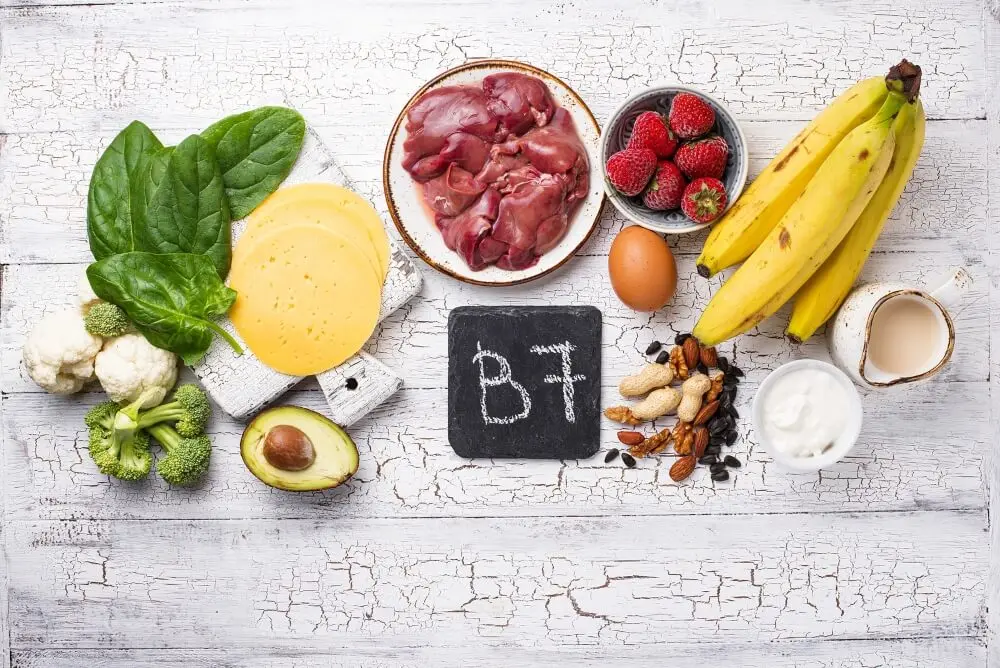Is it Bad to Eat Raw Eggs?


Written and verified by the nutritionist Maria Patricia Pinero Corredor
Eggs are one of the most complete foods that exist in nature. This isn’t only because of the variety of dishes we can make with it, but also because it provides all the necessary nutrients. However, there are still doubts about the best way to prepare them and to what extent it’s bad to consume raw eggs.
It’s difficult to find another foodstuff with so many virtues, despite being so small. However, you must be careful when consuming them, as their nutritional benefits can be wasted if consumed raw.
For example, many athletes prepare drinks based on raw eggs because they believe that they’ll build more muscle mass. However, what they don’t know is that raw protein is absorbed in lower proportions.
Keep reading this fascinating article and clear up, once and for all, why it’s bad to eat raw eggs. In addition, we’ll explain their nutritional qualities and the health risks that can occur if they aren’t cooked properly.
Nutritional properties of eggs
Whether raw or cooked, eggs stand out from other foods of animal origin for their nutritional properties. The fact that they can give life to another being is what makes them a source of essential nutrients for the maintenance of cellular functions.
Eggs provide proteins that contain all the essential and non-essential amino acids. Their biological value is 100, which means that their proteins fulfill the repair and synthesis functions of tissues. They’re a reference point for measuring the quality of other dietary proteins.
The yolk provides more protein than the white, and vitamins and minerals are present in good proportion. This part of the egg is full of antioxidant pigments of the carotenoid type, which give them their characteristic color. Many of them are beta-carotenes that form vitamin A. It also contains biotin, which becomes bioavailable in the egg when cooked.
Other important vitamins in eggs are the B complex vitamins (such as B12, B1 and B6), as well as choline and folic acid. Minerals include zinc, iron, phosphorus, magnesium and calcium.
The contribution of fats is well balanced between polyunsaturated and saturated fats. Among them, omega-3 fat, especially in enriched eggs.

Read more: How to Pasteurize Eggs at Home
Is it bad to eat raw eggs?
The answer to this question is yes. Science will help to expand on the reasons why raw eggs should not be eaten.
It can be a health risk
The chicken, through its feces, is considered a vehicle for a pathogenic bacterium known as Salmonella. This microorganism causes food poisoning through eggs, as their shells can become impregnated with contaminated feces at the time of laying.
The disease causes diarrhea, abdominal cramps, muscle aches, fever, blood in the feces, and vomiting that appears 12 to 72 hours after infection.
Food poisoning is of concern to public health officials. The U.S. Food and Drug Administration (FDA) has issued some recommendations to prevent the illness. For example, they recommend that eggs be kept refrigerated, and well disinfected and that you don’t store them for more than 3 weeks.
They also emphasize that, to disinfect them, they should be rubbed gently with a damp cloth and not washed with abundant water. This is to prevent the protective membrane of the shell, known as the cuticle, from detaching and decreasing their shelf life.
The Centers for Disease Control and Prevention (CDC) indicates that eggs should not be washed before cooking, because this can spread the bacteria. In addition, cooking egg dishes should reach 70 degrees Celsius and it’s recommended not to eat raw eggs or yolks with a runny consistency.
Raw eggs aren’t well digested
When eggs are consumed raw, they aren’t easy to digest. The main reason is that the structure of its nutrients is intact.
For example, egg proteins, such as ovalbumin and ovotransferrin, have very strong bonds when the egg white and yolk are raw. Enzymes are unable to reduce them to amino acids.
But cooking is able to break the bonds to facilitate enzyme attack in the intestine. This releases the amino acids that will later be absorbed and utilized.
Therefore, consuming raw eggs decreases the digestibility of their proteins and of the whole item in general. This prevents the utilization of its amino acids.
Biotin cannot be utilized
Biotin is a water-soluble vitamin of the B complex, known as B7, which acts in the metabolism of carbohydrates and lipids. Eggs contain it in good proportion. But, when raw, this vitamin is trapped by a protein in the egg white known as avidin, making it an anti-nutrient.
Cooking can inactivate this protein by denaturing it. Thus, the biotin in the cooked egg becomes available for absorption.

Read more: Myths and Facts about Egg Consumption
It’s better to eat cooked eggs
The healthiest and most efficient way to consume eggs is to cook them. Not just any type of cooking, but the healthiest. Steamed, soft-boiled or poached eggs are the most recommended.
It should also be taken into account that the cooking temperatures between the yolk and the white are different. For example, the white coagulates around 60 degrees Celsius, while the yolk coagulates around 70 degrees Celsius.
That’s why a cooking temperature of 70 degrees Celsius is suggested.
Eggs fried in oil or butter will increase the caloric value within the diet. In addition, excess fat slows down the digestion process.
Liquid egg whites, which are pasteurized, can be a safe option for meal preparation. Pasteurization ensures the microbiological quality of the product.
Remember that raw eggs don’t not only put your health at risk, but also diminish the nutritional quality of this beneficial food. That’s why to maintain a good intake of protein, vitamins and minerals, you should cook to an optimum temperature.
All cited sources were thoroughly reviewed by our team to ensure their quality, reliability, currency, and validity. The bibliography of this article was considered reliable and of academic or scientific accuracy.
- INSTITUTO DE ESTUDIOS DEL HUEVO. 1ª. Edición. Editorial EVERGRÁFICAS. 2009. Disponible en: http://institutohuevo.com/wp-content/uploads/2017/07/EL-GRAN-LIBRO-DEL-HUEVO.pdf
- Red Nacional de Protección de Alimentos RENAPRA. Salmonelosis. Enfermedades transmitidas por alimentos. Ficha técnica n° 9. Disponible en: http://www.anmat.gov.ar/alimentos/salmonelosis.pdf
- El Centro para el Control y la Prevención de Enfermedades. CDC. Seguridad de los alimentos. La Salmonella y los alimentos. Disponible en: https://www.cdc.gov/foodsafety/es/communication/salmonella-and-food-sp.html
- Departamento de Alimentos y Drogas de los Estados Unidos. FDA. Seguridad con los huevos. Disponible en: https://www.fda.gov/food/buy-store-serve-safe-food/seguridad-con-los-huevos
- FENAVI. Valor nutricional del huevo y productos del huevo. Disponible en: https://fenavi.org/wp-content/uploads/2018/02/4.1.-Valor-Nutricional.pdf
This text is provided for informational purposes only and does not replace consultation with a professional. If in doubt, consult your specialist.








